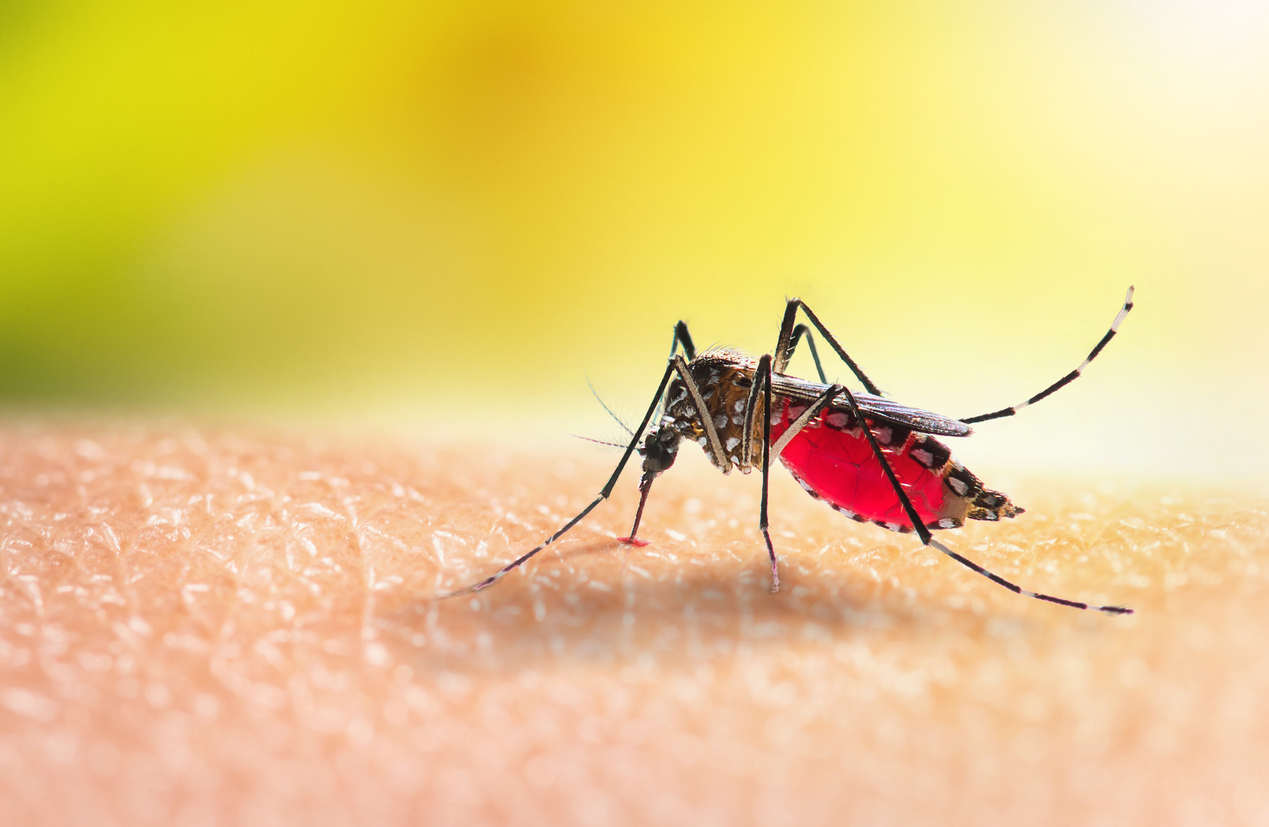2025-07-07
Dengue and the Mind: The Silent Storm
Psychiatry Infectiology
Dengue, often referred to as “seven-day fever” or “breakbone fever,” is a mosquito-borne arboviral disease. Prevalent in tropical and subtropical regions, it poses a major public health challenge due to its high morbidity and the lack of specific antiviral treatments. While neurological complications such as encephalitis or myelitis are now well recognized, secondary psychiatric disorders remain largely underestimated.
Currently, treatment is limited to symptom management, which often neglects the evaluation and follow-up of the psychological consequences of infection. However, several studies have reported cases of mood disorders, anxiety, mania, psychosis, and even obsessive or dysmorphic disorders emerging during or after dengue infection. These psychiatric symptoms can persist well beyond the acute phase, significantly impacting patients' quality of life.
The main challenges are numerous: absence of psychiatric screening protocols, lack of awareness among healthcare providers, confusion with drug side effects (especially corticosteroids), and a lack of robust longitudinal data. These gaps hinder the understanding of the true origin of these manifestations and their appropriate management.
The aim of this narrative review is to analyze all available data on post-dengue psychiatric disorders, to propose pathophysiological explanations, identify predictive factors for their occurrence, and discuss current therapeutic strategies.
Viral fever or psychological shock?
A total of 30 studies were included: 14 observational studies, 14 case reports, and 2 case series. The data were grouped according to psychiatric disorder types to better understand their frequency, potential causes, and treatment approaches. Study selection was based on the PEO framework (Population, Exposure, Outcome).
The most frequently reported psychiatric symptoms were depression and anxiety, with prevalence rates ranging from 60% to 81% during the acute dengue phase. Episodes of mania, psychosis, and rare cases of body dysmorphic disorder were also reported, typically occurring during the febrile stage or in the weeks following recovery.
From a pathophysiological perspective, several mechanisms have been proposed to explain these disorders. These include the activation of pro-inflammatory cytokines, disturbances in serotonin metabolism, and epigenetic changes related to histone deacetylase (HDAC) activation. These mechanisms are similar to those observed in other flavivirus infections, such as Zika or West Nile virus.
Predictive factors include high fever, marked thrombocytopenia, central nervous system involvement, and infections with DENV-2 or DENV-3 serotypes. Psychological stress caused by hospitalization or the perceived severity of illness also appears to play a significant role in the development of psychiatric complications.
Currently, there are no specific guidelines for managing dengue-related psychiatric disorders. Treatments are mostly adapted from conventional psychiatric practice, including mood stabilizers, antipsychotics, and anxiolytics. HDAC inhibitors have also been highlighted as a potential therapeutic avenue, opening up the possibility for more targeted treatment strategies.
The mind versus the mosquito?
Dengue can cause long-lasting psychiatric complications that remain underrecognized in clinical practice. These mental health disorders—ranging from anxiety to psychosis—pose a significant challenge for healthcare providers due to their diversity, unpredictability, and the lack of specific screening and treatment guidelines. This review sought to better define these disorders, understand their underlying mechanisms, and identify associated risk factors.
The results confirm that dengue can trigger or worsen mental health issues, particularly in severe forms or when neurological complications are present. Despite this, current data remain fragmented and largely based on isolated case reports, limiting the generalizability of findings. The absence of standardized diagnostic tools and adapted treatment protocols remains a significant limitation.
Large-scale longitudinal research is needed to better understand the progression of these disorders, validate specific biomarkers, and explore targeted therapeutic approaches—particularly those involving inflammatory and epigenetic pathways. A multidisciplinary approach involving psychiatrists, neurologists, infectious disease specialists, and researchers is essential to integrate mental health into comprehensive dengue care. Without such recognition, the invisible burden of the disease risks remaining in the shadows.
Read next: The vaccine that challenges the standards

Last press reviews
Leprosy: a disease still beyond control

By Ana Espino | Published on January 22, 2026 | 3 min read...
Parental alcohol intoxication: the hidden impact on children’s mental health

By Carolina Lima | Published on January 19, 2026 | 3 min read
Obesity: when the kidneys become overwhelmed

By Ana Espino | Published on January 20, 2026 | 3 min read...